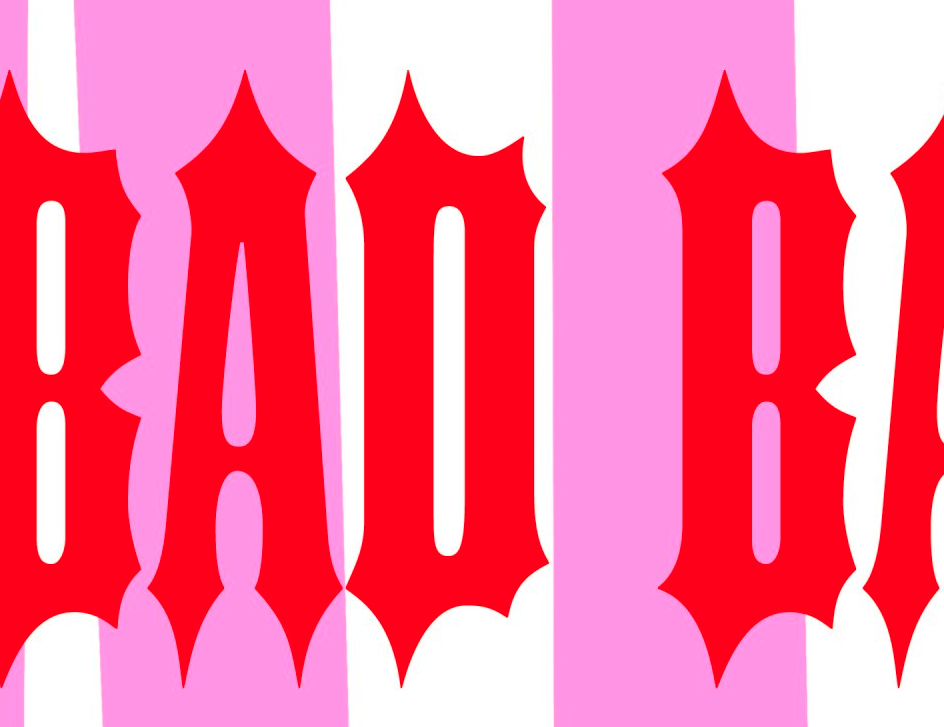Bad Bad
by Chelsey Minnis
Fence Books, $15 (paper)
In the center of Chelsey Minnis’s second book of poems, Bad Bad, you will find a hand-drawn image of a two-headed Bambi. Bad Bad echoes its double-headed doe, and the book is of (at least) two minds. Like Liberace, it’s so bad, it’s good, and it works its reverse psychology on the reader almost immediately. Underneath its Metallica typeface and juvenile hearts, Bad Bad chronicles a love-hate relationship with American poetry and the academic universe in which it too often resides. It is the coexistence of seemingly incongruous emotions (“I have a great desire to enjoy my own disgust . . .”) that compels the speaker to keep reading and writing poetry. Reverently irreverent, Minnis mocks the institutionalization of poetry even as she borrows its forms. From the sixty-eight prefaces that begin the book to the “Anti-Vitae” in which years are marked by rejected grant applications, unpublished poems, and critiques of her work by future poet laureates, Minnis uses the Master’s tools to dismantle the Master’s house. Moreover, she throws a new wrench into the toolbox. After the prefaces, which are made up of statements split both mid-line and end-line by a traditional use of ellipsies, Minnis returns to the extended ellipses that punctuate her first book, Zirconia. Hesitation, resolution, omission, inclusion, decoration, and punctuation, the ellipses are, on the one hand, the bullet-holes that remain after Minnis’s speaker takes shots at the reader. On the other, they are evidence of the unsteadiness of the speaker’s own hand: “I have a new plan for you man-thing . . . / I have a new half-hate for you . . . . . . . . . . . . . . . / I have a whim for you . . . . . . . . . / and it is a love too . . . . . . . . . . . . . . . . . . . . . . .” These lines embody the vulnerability that so often lurks behind the book’s defiance. Minnis’s fuck-you flippancy is tempered with moments of tender disclosure (“I want to cut the arms and legs off a mannequin because that is what it is like to have a look at a poem I have written”) without which we might think the speaker had managed to escape unharmed.







